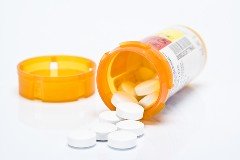Heart Drugs

Pharmaceutical drugs...including heart drugs are toxic synthetics that have been specifically designed to interact with your body chemistry in a particular way.
The vast majority of pharmaceuticals contain synthetic copies of key plant ingredients that have been found to have certain therapeutic uses.
Researchers and developers isolate particular key active compounds often found in nature....synthesize them and establish what is known as a toxicity ratio. This is a level of drug that will determine how much you would need to take to accumulate a damaging amount of the key ingredient in your blood stream.
In their natural state, certain key compounds that are used for pharmaceutical purposes usually exist in plants along with many other synergistic plant chemicals...interacting with each other in ways often not fully understood.
Here are some common examples of pure compounds extracted from plant kingdom origins.
- Morphine from opium
- Cocaine from Coca (Not Cocoa)
- Ephedrine from Ephedra Sinica
- Digoxin from Digitalis leaf
Generally speaking, when a key plant ingredient is isolated and copied to become a synthetic, it becomes a substance that your body doesn't fully recognize. This alters the way it interacts with your body's chemistry to something that is different and more toxic than if the substance was taken by you in its natural plant state.
|
By their very nature, pharmaceutical drugs cause free radical production in your body...a very good reason to supplement with a high quality Antioxidant if you are taking heart drugs |
It is a scientific fact that many pharmaceutical drugs deplete the body of certain key nutritional elements. Most patients are never told this and many health care professionals never pass on this information to their patients...either because they are unaware of this issue or they simply don't see it as important.
Here are a couple of common examples...
- Aspirin: depletes Folate ,Vitamin C and Zinc
- Corticosteroids: deplete Calcium, Magnesium, Vitamin A, B6,C,D,K and Zinc
Always ask your health care professional what foods you should eat more of or what supplements you should take to counter the harmful effects of the drugs you have been prescribed.
Are All Pharmaceutical Drugs Bad News?
If you don't need them...then don't take them. This is the golden rule. Drugs are not nutritious in any way so are not 'good for you' in a way that we know high quality food nutrients are...
However many people would not be alive without them as certain disease processes have either damaged or otherwise interfered with their normal body physiology sufficiently that they wouldn't survive a medical emergency or be able to live with a chronic disease process without pharmaceutical assistance.
Many heart drugs assist people during life threatening medical emergencies and statistically improve their chances of long term survival with most categories of heart disease.
Having said that....
A combination of over reliance on pharmaceuticals...because they can be very effective....associated with smart and aggressive marketing by pharmaceutical companies...because they are profit driven...has created a very expectant atmosphere in the doctors office
I'm used to seeing pharmaceutical drugs quite aggressively marketed in television advertising campaigns...encouraging the consumer to go and ask their doctor if a particular drug is right for them...presumably before the doctor has had a chance to ascertain a diagnosis.
I recall a conversation I had with a Cardiologist colleague of mine. He told me that most patients in his clinic expect medication of some description and are reluctant to adopt a proactive approach to help deal with their heart disease...."just give me a pill Doctor" was what most patients requested…he said.
If your health care professional believes it to be in your best interest for you to take heart medication then please take their advice as your short and long term survival may well depend upon taking them....and taking them as directed...However...
Discuss the need to take certain heart drugs with your Cardiologist or family practice Doctor and always be open to exploring methods that may allow you to become less reliant on them over time.
Some common heart drugs that you may encounter are...
- Angina drugs:
Help control the pain in the chest that you may get with stress or exercise
- Ace Inhibitors: Angiotensin Converting Enzyme Inhibitors or Ace for short. Treat Heart Failure (CHF) and elevated blood pressure
- Anticoagulants
and
Antiplatelet drugs:
Inhibit blood clotting. A common antiplatelet medication is
Aspirin
- Statins: Reduce elevated blood cholesterol levels
- Thrombolytic drugs: Blood clot busting medication. Used during and after a heart attack to dissolve blood clots in coronary arteries
- Anti-Arrhythmic drugs: Used to control abnormal heart rhythms
Click here to go from Heart Drugs to Coronary Heart Health Home Page
Check Out
Age-Well - Look Younger Longer
Information
about strategies to age well and live a long, active life. These
include eating well, exercising regularly, looking after one’s body,and
giving up habits detrimental to health. Information on age-related
diseases and their prevention, keeping mind and brain alert, and looking
younger.
- Angina drugs: Help control the pain in the chest that you may get with stress or exercise
- Ace Inhibitors:
Angiotensin Converting Enzyme Inhibitors or Ace for short. Treat Heart Failure (CHF) and elevated blood pressure
- Anticoagulants
and
Antiplatelet drugs:
Inhibit blood clotting. A common antiplatelet medication is
Aspirin
- Statins: Reduce elevated blood cholesterol levels
|
Scientific research has shown that even if Heart Disease commonly arises among your relatives as a result of genetic pre-disposition YOU can turn the rogue gene off simply by ensuring your diet consists of healthy natural foods. This is VERY Good news! Download the Pdf and read about this for yourself Click here to read Greens Genes and Heart Disease in your browser, or right-click to download it. |



